#ssangmun-dong gang
Photo
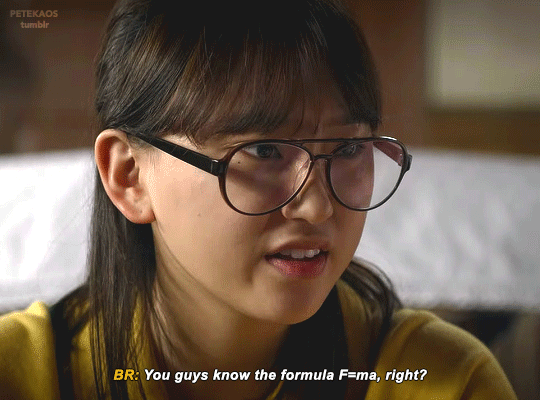
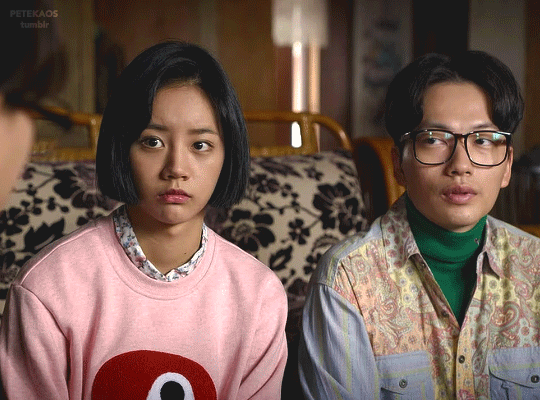
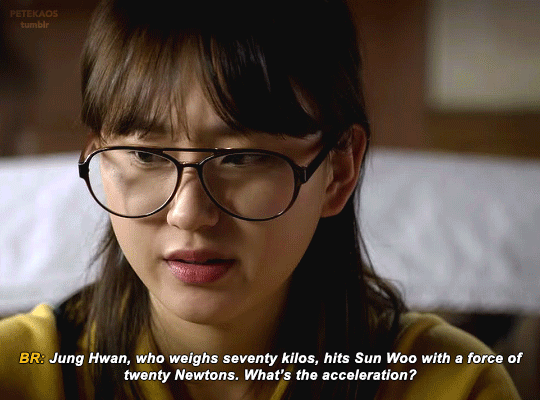

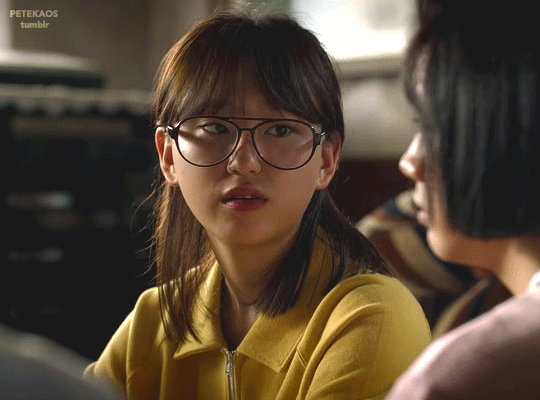
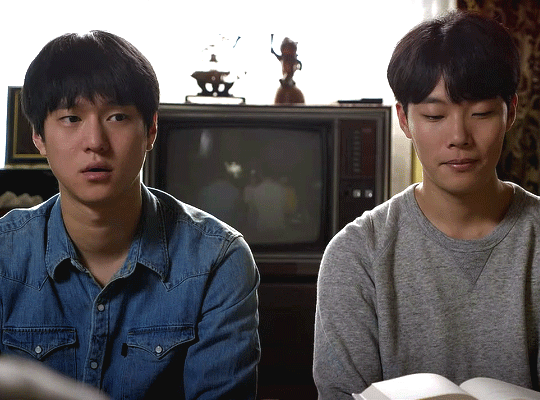
You endured it well. If you didn’t get hurt, that’s good enough.
#reply 1988#kdramaedit#kdramadaily#lee hyeri#ryu jun yeol#go kyung pyo#lee dong hwi#ryu hye young#sung deok sun#ryu dong ryong#kim jung hwan#sung sun woo#sung bo ra#ssangmun-dong gang#THIS SCENE CRACKS ME UP EVERY TIME SDHSND#but it's also such a great insight into their characters#like deok sun and dong ryong are not saying that to be funny or to piss bo ra off#they're genuinely concerned for their friends! and i think that really reflects in the drama too - deok sun and dong ryong are always in#touch with everyone's emotions and care for them in different ways. dong ryong gives advice and deok sun notices ...#and sun woo and jung hwan (especially!) are a bit more on the 'rational' side of things. sun woo less so bc he cares a lot and is the#Dad Friend and the most emotionally/rationally well-rounded person of the group. but jung hwan!! he seems to be so closed off#at first glance. but he isn't! as visible here when he smiles at their concern. jung hwan really does care about his friends deeply and#it makes him happy to see them care for him too ;-;#also i just think jh + sw's smiles are soooo cute here :''')#poor long-suffering bo ra girl i get u </3#rahul.gif#*r1998#anyway rewatching r1988 and BOY !!! i love this gang so much nobody else compares
368 notes
·
View notes
Text
a message to my youth (reply 1988 thought dump)
warning: this isn't meant to be a coherent review or commentary on reply 1988. i literally just finished the kdrama a few moments ago and i want to preserve what i'm feeling through this entry. this is only a cathartic attempt to show how the kdrama had impacted me in so many ways. also, spoilers!
--
to the things that are already gone. to a time that has already passed, i want to say a belated farewell. goodbye, my youth.
watching a kdrama wasn't in my top priorities this year, but things that used to be a part of you would demand to be revisited sometimes. i'm glad that i did, and i'm thankful that it was reply 1988.

taking a nostalgic look at the year 1988, this kdrama tells about the story of five families in a humble block in ssangmun, seoul. for someone born 12 years after the setting, the plot is something strange, a history lesson in the lens of simple households. for someone in the limbo between careless youth and adulting, and someone born in an asian family, this kdrama will feel like home.
culturally speaking, reply 1988 was a beautiful exposition of how asian households run. what got me hooked to continue the drama was the endless saga of giving dishes to neighbors in the first episode. funnily enough, all families ended up having a feast of each house's dinner on their tables.
from a mouthwatering display of korean side dishes, to the trends of 1988 korea (back when jyp himself was a hit lolz jk), to the endless neighborhood gossips, to the flawed and conservative views on politics, and to the tight-knitted family dynamics — one would find this hilarious and relatable, informative even.

reply 1988 was a lot of things, but its casts hold a special place in my heart. the gang had so much love between them and it was so beautiful to see a pure friendship evolve through the years. i wish i could still have loud dinners and drunken nights with my friends when we get into our careers. I would love that.
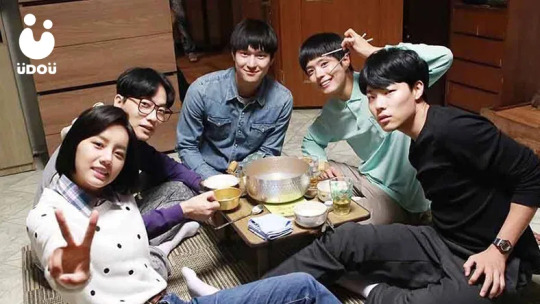
sung deok sun, the optimistic figure in the group, was a ray of sunshine to me even as a viewer. i love deok sun because her spirits were never faltered by her failures and her status in life. my personality is sooo far from deok sun's, but she was relatable to me when she said she didn't know what to do in her life. she doesn't have a dream, i have a lot of them. even so, the uncertainty is there. i guess we all figure things out in the end. deok sun became a flight crew and was able to earn money for the family. i can't wait to figure out my own path, too.
dong ryong, being deoksun's self-proclaimed soulmate faced the same journey. despite not getting into a prestigious university, it's amazing how he was able to establish his own restaurant and even expand branches! makes you really think that not everything in life can be solved by good grades. honestly, i wish i have his street smarts and wisdom. what a powerful person i would be, then.
jung hwan was the man of few words in the group. he showed his affections not through words, but through his actions (and teases for deok sun). his love language would definitely be acts of service! i love jung hwan. he was a good son, brother, and friend. i aspire to have the kindness that he has. but oh dear heavens i would kill just to see how his love life would unfold had he faced the courage to confess to deok sun. i mean, come on! just be straightforward! they would honestly make a good pair, the ray of sunshine girl and the cold guy.
choi taek, the professional go-gamer, was the baby of the group. like jung hwan, he was a man of few words, except that taek was actually shy. his growth through the series was perhaps the most apparent. his innocent image was eventually changed by the way he picked up curse words from the gang, to his smoking, and to his openness of affection for his family and later on, deok sun. also, his character made me fall in love with park bo gum and his smile!

before i go to the next two characters that i associate myself with, i would also like to comment on the household parents of the block. the fathers here have different personalities, but their identities as providers of the house defined the way they act. they keep a tough act and may be distant to their children, but the love is there even though they don't really know much about the household.
and the mothers, oh dear, the mothers. my mom is not a working entity, but i've seen her struggle through the years. i think her burdens are even heavier than that of my dad's. the way this kdrama portrayed the stories of the mothers touched my heart so much that i couldn't stop my tears. never underestimate a woman's strength, i tell you.
from these figures, i learned so much about adulting and marriage. our parents miss their parents, too. our parents would always worry about us, no matter how old we are. our parents are trying to keep everything together, so they put up a tough front. our parents' wishes are devoted to their children. our parents just want the best life for us. not only us are growing old, but our parents, too. our parents want our attention, too. our parents do not have the perfect marriage, but they would do anything for their children. our parents love us deeply.

okay, here goes my reflection in the kdrama — sun woo and sung bora. initially, i was planning to write an entry only about bora, but i realized that i am in many ways alike to sun woo as well. both characters are the eldest children of the family and they face a lot of pressure in their respective families. both characters sacrificed their dreams because they are limited to what their families can afford. sung bora took math education despite her dreams as a prosecutor. sun woo took medicine because that was what his mom wanted. as for me, i chose a course that would promise a stable salary. i dreamed to work in the field of science or writing, but both paths have unstable pays in this country. i do not come from a well-off family, so i have to set my dreams aside.
bora and i do not share the same personality. hers was aggressive and frank, mine was the opposite. even so, i found a piece of my soul in her character because she was steadfast in her goals and was very understanding of her family's situation. she was the cream of the crop in the siblings, the only one who became a student in the premier university, the talk of the neighborhood. she had strong political stances that made her own parents almost disown her, but she was never sorry for it. when it comes to little things, bora had so much privacy over her things that she would get mad at the slightest unauthorized touch of it. oh dear, if that wasn't me.
sun woo, on the other hand, was nearing my male counterpart. he cares so much about his mom and his sister that he hated the thought of the former working. he was the model student, the one with the straight a's, and the one who acts professionally even with the internal turmoil of emotions. he never opposed his mother's wishes and he loved his sister dearly. he would always hold his feelings in, but gets weak in the arms of a loved one. based on his upbringing and firm values, you would also see how he respects women. i love it.
these two never worked out at first because they prioritized their dreams above romance, but i'm so, so happy that they got together in the end.

reply 1988 was perhaps one of the best slice of life shows that i've ever seen. i wish i had watched this when i was younger, because it would teach you so much about family, love, dreams, friendship, and growing up. the pacing would feel kind of slow because of its movie-length episodes, but i swear it was worth it.
to the youth that i was, thank you for building the youth that i am.
to the youth that i am, enjoy the uncertainty and strive to be a better version of yourself.
to the youth that will be, may you never lose the spark inside your heart no matter how old you are.
i will hear your reply in time.
most ardently,
grace
#reply 1988#journal entries#text#kdrama#korean#slice of life#deok sun#jung hwan#sun woo#dong ryong#sung bora#choi taek
69 notes
·
View notes
Note
I stumbled on a post of yours listing your favorite kdrama melos and I hadn't realized until that moment that my fav kdramas (the smiles has left your eyes, just between lovere, secret love affair my ahjusshi etc) would all be classified together as distinct from other kdramas. I'm wondering what your thoughts are about Korean melodrama as a genre that is separate and distinct from not only other kdramas but also Western melodrama.
I apologize for how long it took me to post this response. This is a really great ask, touching on one of my favorite narrative subjects, and it required a bit of mulling before I could formulate an answer.
Melodrama as a genre umbrella is broad enough to include many different types of stories beneath its label. Sometimes the term "melodrama" is used specifically to differentiate from a "romcom", or to indicate that a drama (sometimes, but not always) will steer toward a tragic rather than happy ending. Sometimes it merely means that the subject matter is going to be "heavy" and "angsty" rather than "light and fluffy". The definition of the word in English typically connotes a story that includes sensational or exaggerated characters and themes, designed to appeal to emotion. In fact, if you start trying to parse what we mean when we describe something as a "melo" it might seem so general as to be unhelpful, but I believe we can narrow it down a little more.
The term "makjang" also very often gets applied to Kdramas, sometimes interchangeably with the word melodrama or as a sort of intensifier for melodrama, which is how I frequently use it. Although I would suggest that the way we use the word in the English-speaking fandom is somewhat different from its actual connotations in Korean. If you’re interested in specifics about what that term actually means and where it comes from this is a good blog post. And I think I’ve seen a couple other good definitions floating around if you do some googling.
If you’re more familiar with American television or fairly new to Kdramas, you might compare a makjang drama to a daytime soap opera. All the secrets and betrayals and star-crossed lovers you would associate with melodramas in general, but turned all the way up to 11. The most extreme end of the meo spectrum, verging on absurdity. This is generally what the uninitiated think all Kdramas are like. I frequently have people who don’t know much about the subject refer to Kdramas as “Korean soap operas”. I dislike this characterization because a) it ignorantly and rather Eurocentrically paints all Korean television with the same broad brush, when anybody with more than a passing familiarity knows that Korean television is just as varied in quality and content as any other country’s and b) the term “soap opera” has such a specific, culturally defined, low-rent connotation that I would have a hard time applying it meaningfully to non-Western television.
Not all melodramas are makjangs. Although all makjangs will be some variety of melodrama.
Rather than overwrought, exaggerated or sensational I prefer to use the word "heightened" to describe the subjects of a melo, since the word does not imply a value judgement and I think gestures at the central element of all story—but especially melos—that makes them so appealing in the first place. The emotions are “heightened”, the personalities are “heightened”, the actions are “heightened”. Everything is just a little bigger, a little sharper, a little louder than normal. They have deeper, more broad-reaching implications. They have greater scope and thematic resonance than what we generally experience in everyday life.
Even dramas that deal with fairly quotidian subjects (such as college, family relationships, workplace stress) can either have a more grounded/realistic bent, or a more melodramatic bent. Although I would argue that story because it seeks impose order and meaning on otherwise random or meaningless events through the magic of narrative structure will, by its very nature, necessitate certain type of melodrama. That is the quality of “heightened”-ness. Without it, we don’t really have stories at all. So, in that way this is very much a continuum, and not a set of discreet genre categories
As for the second part of your question, how Korean melodrama is distinct from the Western melodrama…I may not be entirely qualified to answer it, as my perspective is that of a Western viewer who is trying to define and categorize things as a non-native speaker with a distinctly Western literary critical background. However, I will attempt to give you my best answer based on the many dozens of dramas I’ve now seen and my own readings about Korean culture.
Because the single run mini-series with an average of 16-20 episodes is currently the currency of the realm, a lot of Korean television focuses on delivering a compact story with a limited cast of characters and bringing a single story arc to a conclusion. Which is different from most American network television which basically tries to stretch out endless seasons of a show whether the story actually calls for it or not. In the West this is changing because of streaming services, which make prestige television shows more and more desirable and common, resulting in more complete stories in limited runs. And it’s also changing in Korea which has been increasingly experimenting with preproduced, longer run and multi-season dramas. (This is of course a limited view of Korean television, which also has its share of long run weekly dramas or weekenders which have a different structure altogether, but I don’t know much about those so I won’t speak to them.) We’ll have to wait and see what style of television grows and thrives in the coming years.
While Korea has indisputably experienced an Americanization of its media in the past decades, there are certain things that are unshakably culturally construed, which appear in dramas again and again up to the present day. A lot of this peculiarly Korean sensibility I think can be tied to a few factors: the influence of Confucianism, the division of North and South, the country’s history of colonization, and a uniquely Korean relationship with emotionality typified by the concepts of han and heung.
I don’t want to wade too far into waters that are too deep for my shallow understanding, but a lot of the “fodder” so to speak of Korean melodrama comes from the specific history of the peninsula. The heavy emphasis on familial (especially parent/child) relationships and the specific way in which they are handle in Korean dramas requires a basic crash course in Confucianism to grasp. The concept of “filial piety” and different types of generational guilt or generational trauma might seem alien to a Westerner. Especially a Westerner from as young a country as the United States.
Because of the concept of “filial piety” and a strong emphasis on family background and blood ties, the recurrence of plots points like birth secrets, family registry falsification, the mistreatment of orphans, adopted children or the children of criminals/murders is much more frequent in Korean melodramas than Western television and treated with different weight within in the culture, and I find this can sometimes be off-putting or confusing if you don’t understand where some of these hang-ups come from. It’s also important to remember that South Korea is a relatively young Constitutional Republic with an extremely recent and troubled political past. More recent than the Japanese Occupation which left so many scars on the collective cultural consciousness, more recent even than the Korean War and the division of North and South Korea. Also, it doesn’t hurt to recognize that, while social stratification is an issue everywhere and that there is no culture in the world that doesn’t have some kind of class system, strongly Confucianism influenced societies have engrained into their history a type of caste system that many Western viewers are completely unfamiliar with.
I’m not saying that you have to be immersed in Korean culture or history to understand and enjoy dramas, but it certainly helps to understand some of the nuances or even troubling elements that you will detect while watching. And it might be a good attitude to adopt, that if you find something off-putting or weird in a character’s reaction or the behavior of a particular group of people in a drama, to ask yourself if there is some kind of shared cultural context that you might be missing to explain the difference. A lot of what I’ve learned about Korean history and culture over the past few years has come from detecting such differences or such intellectual discomfort and doing my own research to find out why these things are coming up again and again.
Moving away from structure and even just cultural context, I do think there is something really unique in the “feel” of Korean dramas that isn’t present in other media I’ve watched. A special kind of relationship “raw” emotion that I think is integrally and inescapably Korean. I think this has to do with the concepts of jeong, han, and heung.
Jeong has to do with a sense of community and communal love, which I think might be the most “visual” of these three “indescribable” emotional concepts. You can see it in the special weight given to sharing food, or in drinking together. You can see it in the family that the neighborhood of Ssangmun-dong in Reply 1988, that creates an umbrella of bonds which extends far beyond blood relations. It’s something that generates a special kind of warmth that I look to Kdramas for specifically. Of course, when an ideal like this is damaged or missing or twisted beyond recognition it can cut deeply and leave behind irreparable scars. Which, I think, might explain why so many romantic heroes and heroines in melodramas come from places of profound social isolation (people like Moo Young in TSHLYE and Gang Do in Just Between Lovers) or from severely broken homes.
Perhaps more relevant to the discussion of melodramas in particularly, han has to do with a sort of internalized trauma, or grief that one carries with them throughout their lives. It can be a broader cultural trauma (like the societal scars left behind from the Japanese Occupation) or something more personal (Like the loss of a child or a broken relationship). I found this quote which I think explains the feeling and its relationship to Korean media well:
Long-term foreign residents here note a tendency of people to wallow in or enjoy the sadness, in an almost romantic way. There is a deep strain of melancholy in Korean culture, and this is expressed in the modern age through sad songs, films and TV dramas that offer an unrelenting stream of tragic heroes, unrequited love and bittersweet memories – most likely contributing to the appeal of Korean pop culture abroad.
[Korea: The Impossible Country’ by Daniel Tudor (2012)]
Heung is somewhat less relevant to our discussion of melodramas, although it is interesting and much more evident I think in other examples of Korean media, but it is the almost manic reaction or counterpoint to han. A sort of overflowing, irrepressible sense of pure joy. And I totally recommend you go out and read about this stuff yourself, I'm probably just slaughtering these concepts trying to summarize them in my feeble way.
It the special cocktail of all three of these "feelings" that give Korean dramas (for me, Korean melodramas in particular) that special addictive quality that made me fall so deeply in love with them. That tacit permission to feel things, to feel them deeply, even overwhelmingly and the catharsis that goes along with that. That is the special sauce, the “heightened”-ness I mentioned before that takes the mundane and makes it magical.
Sorry this got so out of hand, but I hope it was an interesting read and worth the wait. Thank you so much for the ask.
Jona
20 notes
·
View notes
Photo

the ssangmun-dong gang in reply 1988 in reply 1988 ✧ unreleased photos
1200 x 800
#박보검#park ogum#park bo gum#류준열#ryu junyeol#이동휘#lee donghwee#고경표#go kyungpyo#girls day#hyeri#official: reply 1988
159 notes
·
View notes
Photo

Reply 1988
tvN (2015-2016) 20 Episodes
Family, Comedy, Romance, Friendship, Life, Youth
Lee Hye-ri, Park Bo-gum, Go Kyung-pyo, Ryu Jun-yeol and Lee Dong-hwi
–Set in 1988. I really love this drama! Made me reminisce the 80’s childhood I never had, xD. The story is simple but very heart-warming, reflecting the lives of ordinary people, it feels so realistic. It’s not like the other drama about chaebol oppa and poor girl. At the end of the story, I’m a little bit disappointed. It has a lot of moral lessons to learn as a student. Love the relationship between all the friends and the parent’s relationships too. Ssangmun-dong Gang the Squad Goal.
1 note
·
View note
Photo

the ssangmun-dong gang in reply 1988 ✧ unreleased photos
#박보검#park ogum#park bo gum#류준열#ryu junyeol#이동휘#lee donghwee#고경표#go kyungpyo#girls day#hyeri#official: reply 1988
133 notes
·
View notes